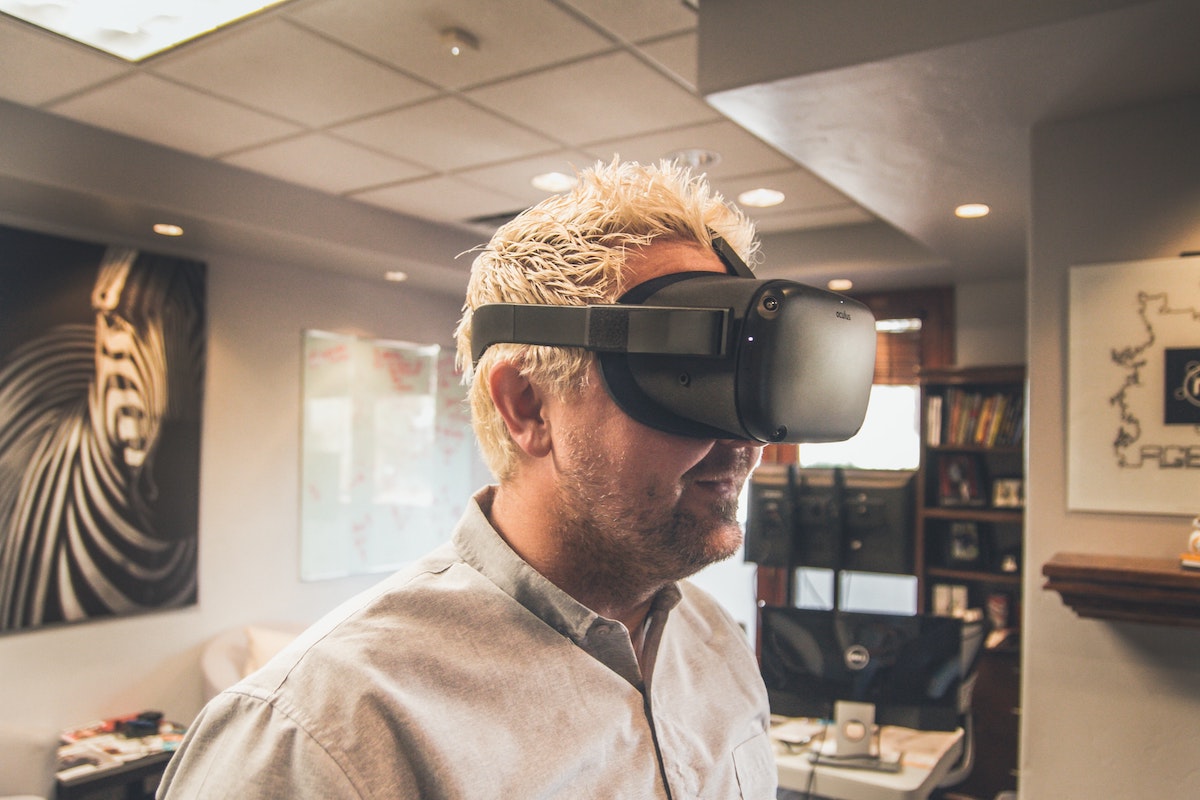The Inverted Funnel: How Blockchains Will Shake Up the Traditional Consumer Funnel
The use of blockchains will become mainstream in a few years from now, so say consultancies and pundits, who look at penetration curves across the globe1. Crypto is on the rise and powerhouses like Starbucks and Nike are merging blockchain into the fabric of business, reinventing the dialogue with their fans. In this short piece, we double click on how the efficiencies, tracking and reconciliation capabilities of blockchains will revolutionize the famous 4 P model2. We will do that with a slightly activist tone. The future scenarios are, indeed and on purpose, exaggerated, to highlight the disruption vs. today’s status quo. How is the world of marketing looking like five to ten years from now? We will go from product [...]
Innovation Management Data Trends from 2021: What Can We Learn About 2022?
Many people have said that 2021 was 2020 Part II, but IdeaScale looked at some of our system data (as we do every year) to see what we could learn, and there are a few key trends we think are different from 2020, and that we think bode well for a creative 2022.
Reflections on the Evolving Role of Innovation Professionals, Based on a Recent Panel Session
I recently participated in a panel session as part of a great conference organised by the Innov8rs group (thanks Hans!), with an amazing set of innovation leaders, including Gina O’Connor, John Metselaar, and Andrea Kates.
Is Innovation the Secret to Adapting to the Regenerative Future?
The inevitable changes ahead for our industries and for our way of life are just as profound as they were in previous shifts in eras. The Climate Action Sweepstakes is committed to supporting efforts that help companies step into the early days of the Regenerative Era with clarity, courage and maximum positive impact by leveraging the power of their employee network.
What Companies are Excelling at Innovation in 2021?
Every year, IdeaScale hosts the Innovation Management Awards to honor the work of organizations who are accessing the voice of the crowd and the power of digital innovation programs to generate extraordinary results. The competition has three categories: best innovation engagement strategy, best innovation process, and best innovation overall. Here’s what we can learn from this year’s winners.
How Leveraging the Gig Economy Keeps Innovation Flowing
The future of work involves embracing the gig economy, which includes freelancers, partners, and other vendors. Business leaders must scale with this in mind.
Four Traits Your Next CEO Must Have For Your Organization to Thrive
Want to ensure your organization will thrive over the long run? If so, then your next CEO must have these four traits – 1) relentless focus on the long-term future; 2) inherently entrepreneurial mindset; 3) solid grounding in reality and the fundamentals of business; and 4) behavior of a consummate diplomat.
What is the New Model for Innovation Success?
In this series I’ve been critically examining the significant changes impacting the corporate innovation competency, which leads to how organisations drive future growth and impact.
Trending Questions
What is a trend, and other questions answered by Sébastien Van Laere, Co-founder of Superframe, an agency using insight and foresight to develop brand-, innovation- and business strategy for some of the biggest global brands.
Is There Value in an Innovation Program for Your Company?
In my last article I wrote about the influences and themes that I see changing how large, mature and (often) incumbent organisations drive innovative growth and impact. In short, the innovation development professionals are (ironically) being disrupted.
Innovation in Focus: Private Equity and Institutional Actors
Private equity funds invest in many traditional companies. So do institutional actors. When asked, leading voices in this field often claim that they are not looking for the next big thing, but dominant companies in the field, with low risk and a relatively predictable and stable cash flow.
How Innovation Management is Radically Transforming in 2021, and What It Means for You
Every new year I create a series of personal and professional resolutions. Sure, many fade into (foggy) memory, but this year I was determined to once again focus on building out my professional network. So I’ve been getting out there and having some great conversations with smart leaders, who are connected to innovation development from different career levels, competencies, geographies and industry sectors.
Why Virtual Experiences Are Here to Stay
The pandemic caused brands in all industries to embrace virtual events. But even once the pandemic eventually subsides, these digital experiences will continue to deliver value.
What Can We Learn from the Innovation Averages in 2020?
Every year, IdeaScale conducts an in-depth study of their customer trends in order to write an annual report, provide benchmarks to our clients (and ourselves), and better understand the marketplace. This data gathering and analysis takes up the better part of our first quarter and our report is generally published in March, but 2020 is a unique year for the crowdsourced innovation community (and indeed for everyone in the world).
How Machine Learning is Changing Business Communication
Machine learning is not a sci-fi concept anymore. Over the past few years, it has improved business operations in multiple ways. One of the areas that benefit from ML technologies the most is business communications. So, how does machine learning impact your internal and external communications? Let’s find out!
The Pandemic Pivot: The Need for Product, Service and Business Model Innovation
The pandemic and economic depression the world faces is a dark period for all businesses, but there are also opportunities. The companies that see the opportunities, and pivot to exploit them, will succeed, while those that fail to innovate will fade away.
The Three Factors That Drive Consumer Behavior
As the adage goes, the only constant is change, and such is the case with consumer behavior. Thus, tracking trends, using business analytics to predict where the next trend may be, and acting accordingly with your marketing is a recipe for success.
Frugal Banking: An Opportunity to Create Customer Value in the Future?
Investments that are necessary to innovate and serve customers are no longer sustainable while COVID-19 hastens the need to exploit the potential of digital innovations. Serving customers accurately during unprecedented times requires a new mindset and business model innovations. If banks respond to customer requirements in completely new special situations, they can gain trust and integrity and become winners of the crisis.
How has COVID-19 Accelerated Trends in Customer Service?
Since the outbreak of COVID-19, customer behavior has changed dramatically. To survive, businesses need to adapt by accelerating customer service trends that already exist.
Have You Done Your Homework? Aspirations, Blessings and Curses of Working Remotely
One of the most significant ways the COVID pandemic impacted work has been to get much more of it done from home. Subscriptions to extra bandwidth and virtual meeting platforms skyrocketed. People’s imaginations and their capacity to make new things happen and change their work habits accelerated overnight.
Digital Tools and the Future of Remote Work
Until recently, remote work was somewhat of a rarity, and, at very least, something most people were unfamiliar with. One of the few COVID-19 silver linings, however, was that many companies were forced to have their employees work remotely due to stay-at-home orders. This meant more time with families, less time in transit, and, for a lot, a surprising sense of comfort at "the workplace."
What Do Leading Innovators Do Differently
Every year, IdeaScale hosts the global Innovation Management Awards and honors winners in three different categories: engagement, process, and implementation. We see these categories as the cornerstones of any successful innovation program, so the winners this year actually excel at each of these things.
How COVID Impacted 2020’s Innovation Trends
Every year, IdeaScale undertakes a comprehensive audit of our system data, our customer conversations and survey data in order to develop report on the state of crowdsourced innovation.
How Can AI and IoT Help in the Fight Against the COVID-19 Pandemic?
The mix of IoT and AI is being used by tech enthused agencies for curbing the rise of coronavirus cases, and flattening the curve. Read all about it here.
The World has Changed: Is Your Organization Ready?
The COVID-19 epidemic has had a tremendous effect on many aspects of our lives and resulted in a significant change in the workforce, and on the very way that individuals and organizations work. Suddenly, without warning, it seems that the entire business world shifted to Zoom and its competitors in a day, since it offered a concrete solution to the challenges raised by the current crisis.
Preparing a Team For Transition To Remote Work In COVID-19 Environment
In the wake of the coronavirus pandemic, many companies have implemented mandatory work-from-home policies to help contain the spread of COVID-19. While large companies have the resources and experience to foster a massive ‘home office shift’, smaller companies who have never implemented such policies before are facing numerous questions regarding this new work arrangement.
The Key Steps Innovation Professionals Should Take in a COVID-19 Environment
Obviously COVID-19 is having an enormous impact on all aspects of our lives, with the scope and scale of business disruption being immense and incredibly challenging. But disruption is what innovation people are generally excellent at responding to, so the question becomes - “how do you and your team support your organisations within this environment?”
The Day After the COVID-19
We are in the midst of a fascinating period. The most interesting thing is what will be in the day after. It’s going to be a process. There isn’t going to be a point in which we know that we are “after.” The process looks different in every country and the duration of the process will also be different.


























